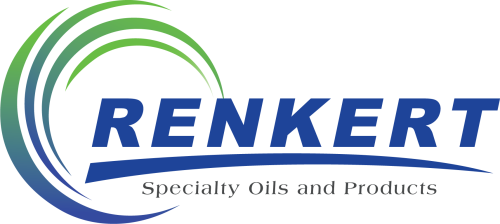Lubricant makers have been struggling with tight base oil supply and significant pricing pressure since late 2020. Continuing to serve their customers well comes down to having the right strategies and partnerships in place.
There’s no hiding that it’s been a tough market. Worldwide, base oil and additive supply tightened severely in 2021, and we’re still feeling the effects in 2022.
- Difficulty in securing raw materials caused six pricing increases in North America in 2021.
- The average increase was 14%.
- Overall, the annual increase amounted to 116%.
- This was staggering when compared with the previous highest annual increase, just 27% in 2011.
All this has led to the constrained supply and heightened prices on passenger car motor oil (PCMO), heavy-duty engine/motor oil (HDEO/HDMO), and industrial lubricants.
The key to success in this environment is a renewed scrutiny of supply chain resilience and diversification for base oils and additives. Here’s how you can start to tackle these challenges, and info on an upcoming event where you can learn more.
Base Oil Supply Chain Checklist
As you work toward improving your supply security and managing rising costs, we recommend starting with these four tips.
1. Increase your investment in company-held inventory.
In a tight-supply market, it’s vital to deepen your inventory investment. Tips #1 and #2 are both valid approaches.
One is to expand the inventory you hold. You may need to expand your storage capacity, if necessary, so you can increase the size of your orders.
This is the “hands-on” approach to preparing for future demand: holding additional inventory to create your own buffer against supply chain disruptions.
2. Create a contract account to invest in your supplier’s inventory.
A second option is to work with a deep-inventory supplier on a contract basis. This approach is likely best if a cost-prohibitive expansion of storage capacity would be necessary to hold additional stock.
Renkert Oil has specialized in this model for decades, holding deep inventories of industrial-grade base oils and food-grade white mineral oil on behalf of our customers to create this buffer.
Whether you opt for #1 or #2, or a hybrid, lubricant manufacturers that traditionally hold low inventory-to-sales ratios must consider a deeper investment in shoring up inventory today. As we’ve seen, the on-demand global supply system is far from unbreakable.
3. Diversify your supply chain with secondary base oil suppliers.
After the magnitude of pandemic-era supply chain disruptions, lubricant manufacturers would be wise to further expand access to base oils by reaching out to new partners.
As Business Development Engineer Matt Bishop of Kaysun Corporation explains, there are a few key factors to consider when selecting secondary partners, beyond availability:
“Do they have a reputation for doing whatever it takes to get the job done? Are they flexible enough to be responsive to your needs, especially after an unforeseen impediment jeopardizes your on-time production schedule? Will they work with you to ensure seamless quality, consistency and fulfillment?” — Matt Bishop, 3 Reasons Why Manufacturers Should Work with Secondary Sourcing Partners
A good primary partner should be able to refer you to a “friendly” competitor that can fulfill this role. Renkert Oil has been that trusted secondary supplier for countless lubricant makers over the years, frequently fulfilling spot orders when supply chain problems hinder primary suppliers.
(And we can refer you to “friendly competitors” in instances in which we are unable to fulfill orders, which we’re proud to say are extremely rare among contract customers.)
4. Diversify transportation with new trucking solutions.
To the extent that you manage your company’s supply logistics, it may be worthwhile to reach out to new trucking companies. This is perhaps easier said than done amid difficulties securing consistent transport services.
But, as we’ve found, there may be creative solutions.
For example, you may be able to find companies that have plenty of drivers available but don’t typically transport your products, e.g. base oils. In this case, we have found success in renting the necessary vehicle(s) for the company’s drivers to use.
Of course, the simpler solution is to work with suppliers that have diversified trucking contracts to handle the logistics for you. This may be the most cost-effective approach as well, saving you staffing and other costs associated with transport management.
Let’s Talk Base Oil Supply! Join Us at the ILMA Annual Meeting
As a member of the Independent Lubricant Manufacturers Association, Renkert Oil is a familiar name to ILMA annual meeting attendees.
We’ll be there this fall to chat with refiners and lubricant manufacturers about supply security and pricing pressure, and we look forward to discussing new solutions to address these challenges.
2022 ILMA Annual Meeting
Independent Lubricant Manufacturers Association
October 1-4, 2022 – Marco Island, Florida
If your company produces thermoplastic elastomers, adhesives, sealants, and similar products, you may also want to join us at additional events we’ve previously mentioned.
Or you can always contact us to learn more about how Renkert Oil can help you meet today’s post-pandemic challenges to base oil supply security and more.

